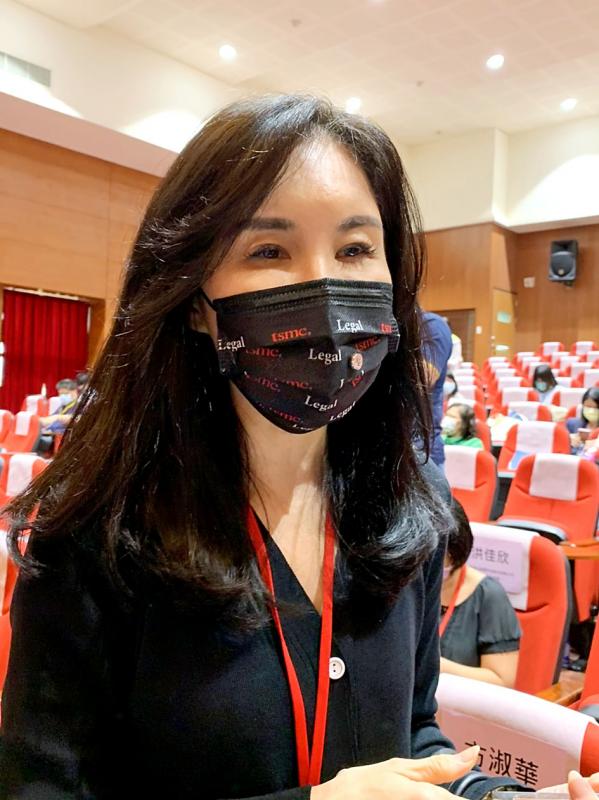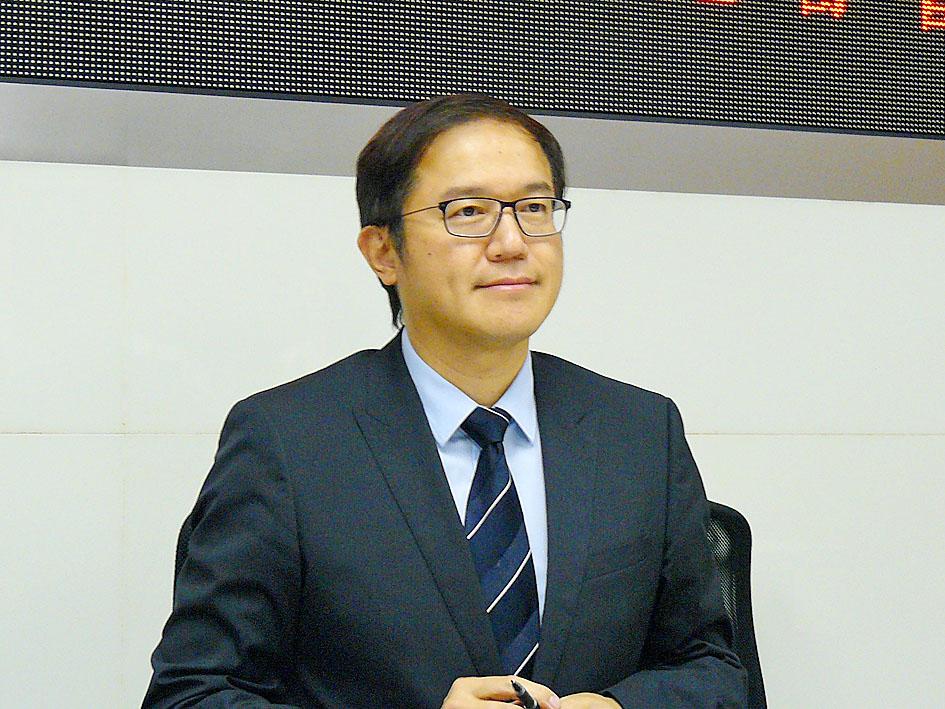The efforts of the administration of US President Joe Biden to untangle global chip supply snarls is facing resistance from lawmakers and executives in Taiwan and South Korea, complicating attempts to resolve the bottlenecks hurting industries from automobiles to consumer electronics.
The US Department of Commerce late last month asked companies in the semiconductor supply chain to fill out questionnaires by Nov. 8 seeking information regarding the ongoing chip shortage. While the request is voluntary, US Secretary of Commerce Gina Raimondo has told industry representatives that the White House might invoke the Defense Production Act or other tools to force their hands if they do not respond.
The issue has become particularly thorny in Taiwan, home to Taiwan Semiconductor Manufacturing Co (TSMC, 台積電), which accounts for more than half of the global contract chipmaking market. That dominance has prompted rivals such as Intel Corp to call for more domestic investment, and spurred governments in the US, EU, Japan and China to mull efforts to bolster their own chip industries to reduce their reliance on the world’s most advanced semiconductor manufacturing hub.

Photo: Grace Hung, Taipei Times
“TSMC absolutely will not hand over sensitive information, particularly client data,” TSMC general counsel Sylvia Fang (方淑華) told reporters on Wednesday.
Three of TSMC’s top five customers are in the US, with the largest, Apple Inc, accounting for a quarter of total sales.
“TSMC is still assessing how to respond,” Fang said.

Photo: Grace Hung, Taipei Times
Smaller peer United Microelectronics Corp (聯電) declined to comment on how it would respond to the US query, although chief financial officer Liu Chi-tung (劉啟東) said that the company would protect customers’ non-public information.
The South Korean Ministry of Trade, Industry and Energy on Wednesday released a statement expressing concern over the scope of the US request. The Joongang Daily also cited unidentified people at local chipmakers as saying that they might have a difficult time complying with the requests.
The potential standoff comes as chip shortages are going from bad to worse. Lead times in the industry — the gap between putting in a semiconductor order and taking delivery — rose for the ninth month in a row to an average of 21.7 weeks last month, the Susquehanna Financial Group said. That is by far the longest since the firm began tracking the data in 2017.
In the questionnaire, chipmakers were asked to comment on inventories, backlogs, delivery times, procurement practices and what they were doing to increase output.
The US Department of Commerce is also requesting information on each product’s top customers.
However, the department has come to realize that many are struggling with the questionnaire and it is preparing an information handout to help companies respond, Fang said.
“If the US is looking to resolve supply chain issues, we will see how we can best assist them,” Fang said. “We have done a lot to help, including increasing output of auto chips and prioritizing auto customers to a certain degree.”
The US reach for chipmaker data has also run into resistance from Taiwanese politicians and shareholders. The Ministry of Economic Affairs on Saturday said that Taiwanese chipmakers would not provide information pertaining to “trade secrets” without consent from customers, offering its support as they communicate with clients and the White House.
That has not quelled the protest from opposition lawmakers.
“Taiwan should not cave in automatically when it comes to dealing with the US,” Chinese Nationalist Party (KMT) caucus whip Alex Fai (費鴻泰) was reported saying on Wednesday. “If we supply the US with all the information it’s seeking, will TSMC still be competitive in the world in the future?”
An individual investor petitioned a district court in Taiwan earlier this week to prevent TSMC from handing over sensitive information, including the names of its customers, to foreign governments, said Rachel Huang (黃雨柔), a lawyer representing the person at Liu & Partners (華通國際法律事務所) in Taipei.

SEMICONDUCTORS: The German laser and plasma generator company will expand its local services as its specialized offerings support Taiwan’s semiconductor industries Trumpf SE + Co KG, a global leader in supplying laser technology and plasma generators used in chip production, is expanding its investments in Taiwan in an effort to deeply integrate into the global semiconductor supply chain in the pursuit of growth. The company, headquartered in Ditzingen, Germany, has invested significantly in a newly inaugurated regional technical center for plasma generators in Taoyuan, its latest expansion in Taiwan after being engaged in various industries for more than 25 years. The center, the first of its kind Trumpf built outside Germany, aims to serve customers from Taiwan, Japan, Southeast Asia and South Korea,

POWERING UP: PSUs for AI servers made up about 50% of Delta’s total server PSU revenue during the first three quarters of last year, the company said Power supply and electronic components maker Delta Electronics Inc (台達電) reported record-high revenue of NT$161.61 billion (US$5.11 billion) for last quarter and said it remains positive about this quarter. Last quarter’s figure was up 7.6 percent from the previous quarter and 41.51 percent higher than a year earlier, and largely in line with Yuanta Securities Investment Consulting Co’s (元大投顧) forecast of NT$160 billion. Delta’s annual revenue last year rose 31.76 percent year-on-year to NT$554.89 billion, also a record high for the company. Its strong performance reflected continued demand for high-performance power solutions and advanced liquid-cooling products used in artificial intelligence (AI) data centers,

Gasoline and diesel prices at domestic fuel stations are to fall NT$0.2 per liter this week, down for a second consecutive week, CPC Corp, Taiwan (台灣中油) and Formosa Petrochemical Corp (台塑石化) announced yesterday. Effective today, gasoline prices at CPC and Formosa stations are to drop to NT$26.4, NT$27.9 and NT$29.9 per liter for 92, 95 and 98-octane unleaded gasoline respectively, the companies said in separate statements. The price of premium diesel is to fall to NT$24.8 per liter at CPC stations and NT$24.6 at Formosa pumps, they said. The price adjustments came even as international crude oil prices rose last week, as traders

SIZE MATTERS: TSMC started phasing out 8-inch wafer production last year, while Samsung is more aggressively retiring 8-inch capacity, TrendForce said Chipmakers are expected to raise prices of 8-inch wafers by up to 20 percent this year on concern over supply constraints as major contract chipmakers Taiwan Semiconductor Manufacturing Co (TSMC, 台積電) and Samsung Electronics Co gradually retire less advanced wafer capacity, TrendForce Corp (集邦科技) said yesterday. It is the first significant across-the-board price hike since a global semiconductor correction in 2023, the Taipei-based market researcher said in a report. Global 8-inch wafer capacity slid 0.3 percent year-on-year last year, although 8-inch wafer prices still hovered at relatively stable levels throughout the year, TrendForce said. The downward trend is expected to continue this year,